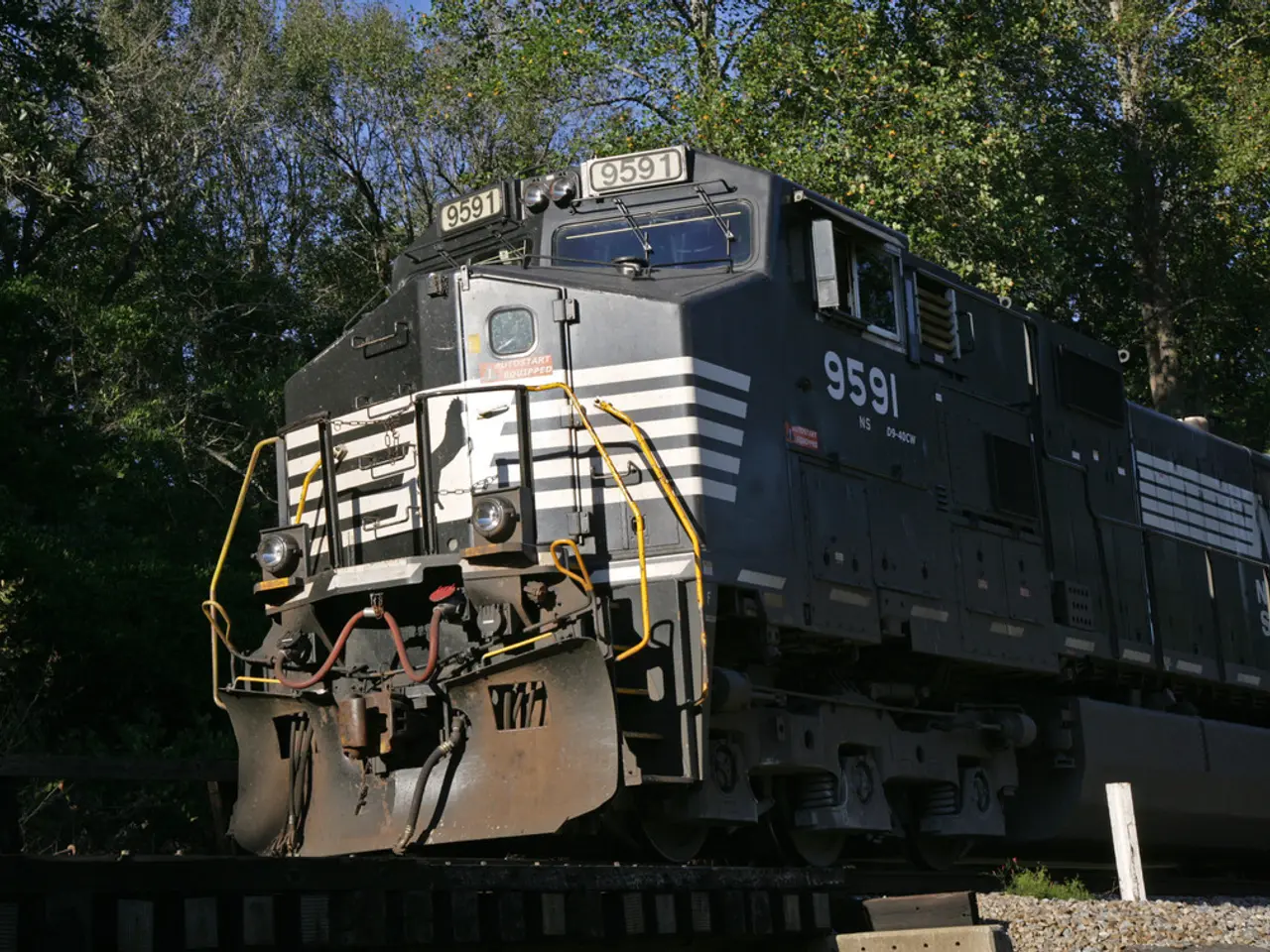Experiences significant three-digit million dollar loss in the initial stage of training - Trains encounter triple-digit million deficit during the initial six months
Deutsche Bahn, Germany’s national railway operator, has reported a net loss of around €760 million after taxes for the first half of 2025, a significant improvement compared to the €1.6 billion loss during the same period in 2024[1][2].
In response to ongoing financial and operational challenges, including poor punctuality, aging infrastructure, and increasing traffic volumes, Deutsche Bahn is actively implementing a comprehensive restructuring program[2][3]. This program spans infrastructure modernization, operational improvements, and financial stabilization, with targeted results expected by the end of 2027[2][3].
Key aspects of the restructuring program include overhauling about 40 heavily used rail routes, with major renovations starting August 1, 2025, on the critical Berlin-Hamburg corridor[2]. This renovation is considered the first real test of the construction concept, as the important connection between Berlin and Hamburg will be completely closed for nine months[2].
Renovation projects will continue over multiple years, including extensive works in 2026 and 2027 on routes such as Hagen–Cologne, Nuremberg–Regensburg, and Rosenheim–Salzburg, among others[2][4]. Furthermore, scheduling adjustments will extend timelines through 2036 to balance capacity needs.
Operational restructuring within DB Cargo, the freight division, is also a key component of the program. This includes cutting 2,300 jobs alongside restructuring into customer-focused, autonomous business units responsible for their own financial and operational performance[1]. The aim is to stabilize and transform this core division.
Despite these efforts, punctuality remains a concern, with only 57.1% of long-distance trains arriving on time as of June 2025, below the targeted rate of 65-70%[2]. Improvement in punctuality after the renovation of the Hamburg-Berlin route is not expected.
Further major renovations are likely to be necessary, with four planned for 2026. Deutsche Bahn’s current status is one of gradual financial recovery amid a challenging operating environment. Its future goals center on completing a large-scale infrastructure overhaul, optimizing operational efficiency especially in freight transport, and returning to profitability and improved service reliability by the end of 2027[1][2][3][4].
[1] German Press Agency (2025). Deutsche Bahn reports loss of €760 million for first half of 2025. [online] Available at: https://www.dpa.de/de/presse-mitteilungen/deutsche-bahn-berichtet-verlust-von-760-millionen-euro-fuer-erste-halbjahreszeit-2025-1349624
[2] Deutsche Bahn AG (2025). Deutsche Bahn publishes first half-year balance on Thursday. [online] Available at: https://www.deutschebahn.com/en/newsroom/press-releases/deutsche-bahn-publishes-first-half-year-balance-on-thursday.html
[3] Deutsche Bahn AG (2025). Deutsche Bahn announces comprehensive restructuring program. [online] Available at: https://www.deutschebahn.com/en/newsroom/press-releases/deutsche-bahn-announces-comprehensive-restructuring-program.html
[4] Deutsche Bahn AG (2025). Deutsche Bahn outlines timeline for major renovations through 2036. [online] Available at: https://www.deutschebahn.com/en/newsroom/press-releases/deutsche-bahn-outlines-timeline-for-major-renovations-through-2036.html
- In order to achieve long-term financial and operational stability, Deutsche Bahn's comprehensive restructuring program includes a focus on vocational training for its employees, aimed at enhancing operational efficiency and transportation services by training future leaders within the industry.
- To address immediate fiscal challenges, Deutsche Bahn is seeking strategic partnerships with local businesses and public-transit agencies, exploring various finance options to offset the costs associated with the planned infrastructure renovations and maintain service quality.
- As part of the restructuring program, Deutsche Bahn is implementing transportation innovations, such as integrating advanced technologies like smart signaling systems and eco-friendly trains into the daily operations on routes like Berlin-Hamburg, thus improving service and reducing environmental impact for the community.




